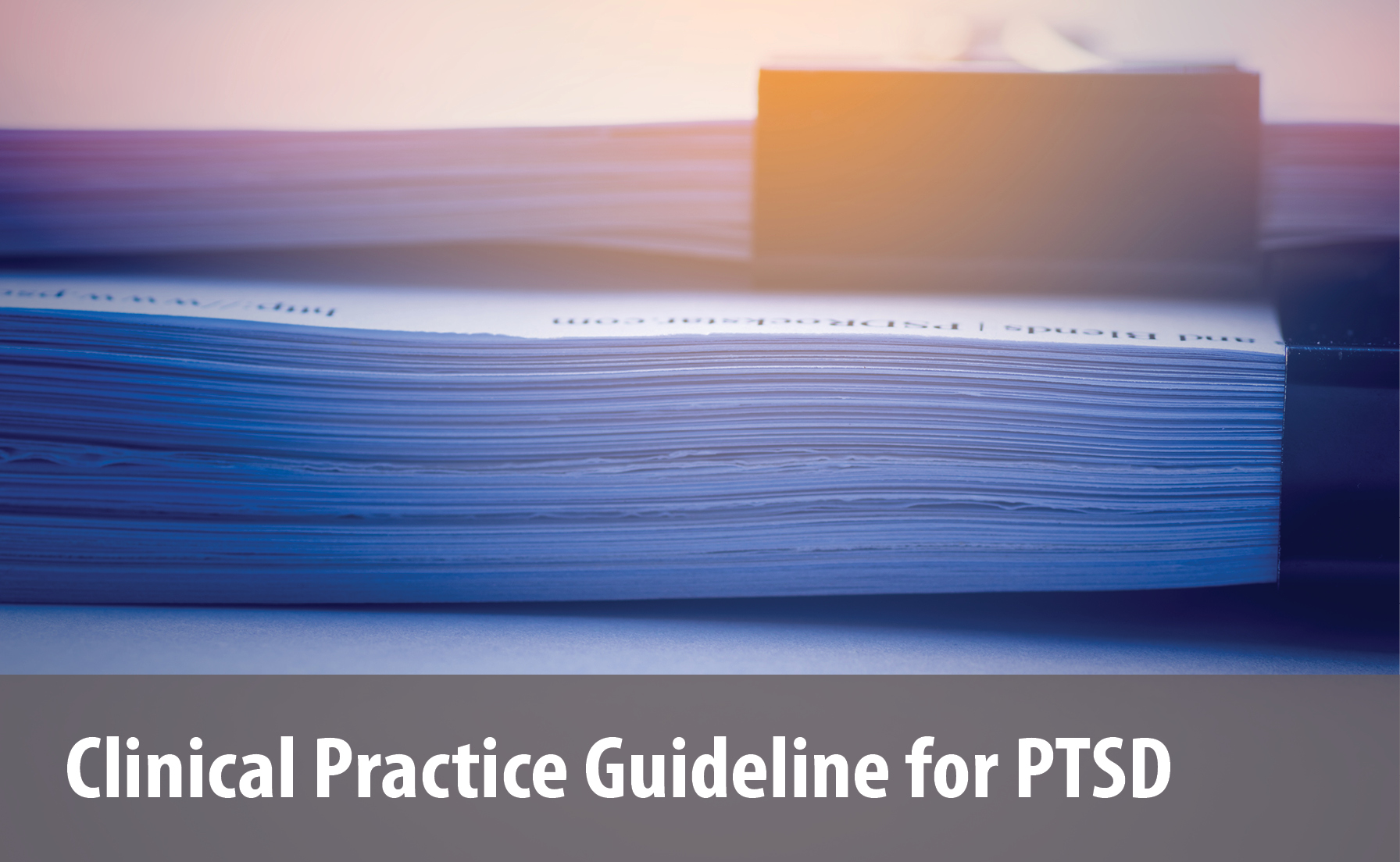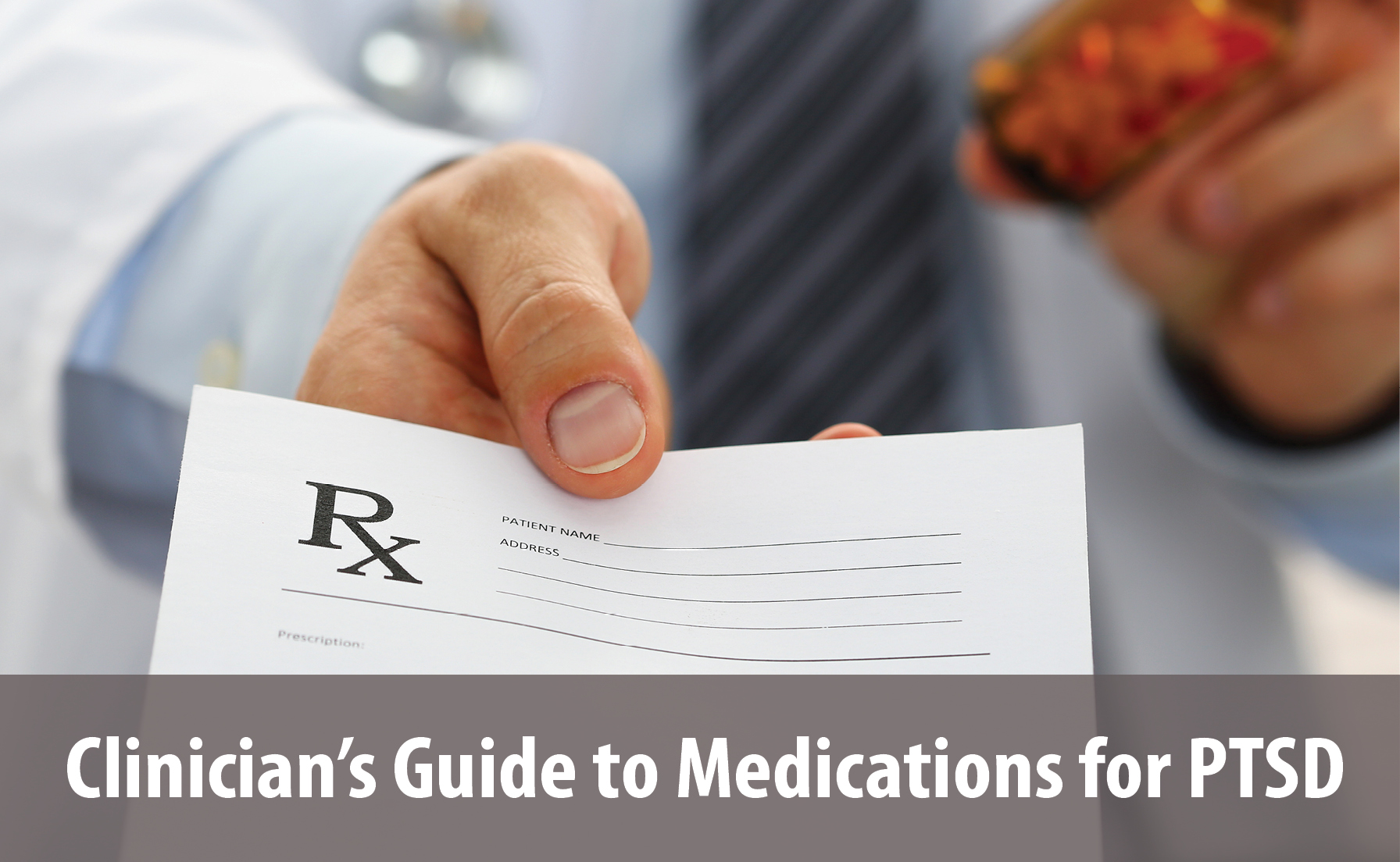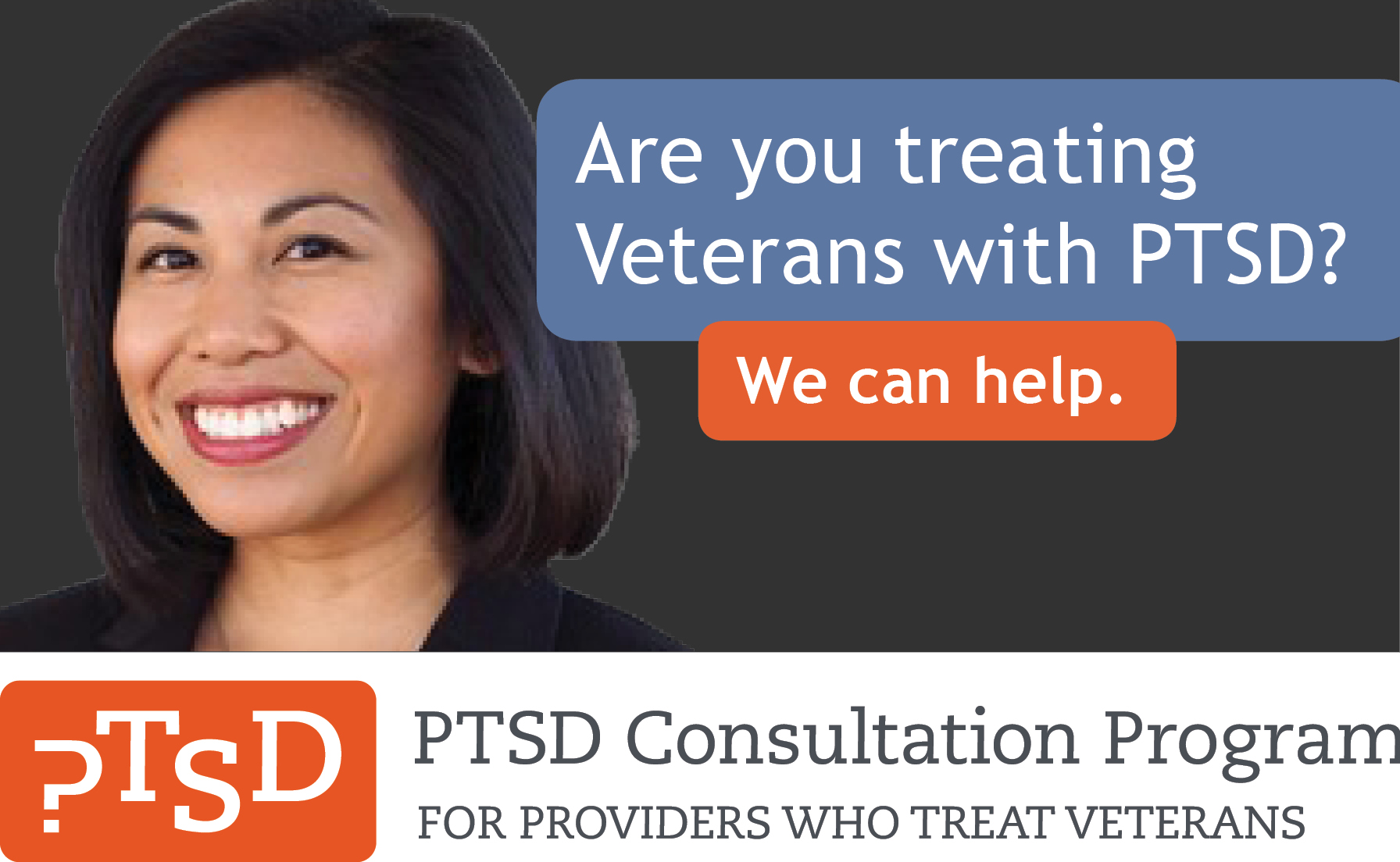Attention A T users. To access the menus on this page please perform the following steps.
1. Please switch auto forms mode to off.
2. Hit enter to expand a main menu option (Health, Benefits, etc).
3. To enter and activate the submenu links, hit the down arrow.
You will now be able to tab or arrow up or down through the submenu options to access/activate the submenu links.
Locator
Contact
Search
Treatment Essentials
Treatment Essentials
As these articles show, trauma-focused psychotherapy is the premier treatment for PTSD, but medication has an important role to play. Emerging and alternative treatments, as well as methods to better engage patients or enhance their treatment response are also described.
Clinical Practice Guidelines
- VA/DoD 2023 Clinical Practice Guideline for the Management of PTSD
The updated (2023) VA/DoD CPG includes objective, evidence-based information on the management of PTSD and related conditions, including diagnosis, treatment, and follow-up recommendations.
Psychotherapy
- Overview of Psychotherapy for PTSD
Reviews the 2023 VA/DoD Clinical Practice Guideline (CPG) evidence base for PTSD treatment, including discussion of the research underlying the recommendations for specific psychotherapies. - Cognitive Processing Therapy for PTSD
Explains the theoretical model and session content of Cognitive Processing Therapy (CPT), including a review of effectiveness research for individual and group modalities as well as studies including special populations and comorbidities - Prolonged Exposure for PTSD
Explains the theoretical model and session content of Prolonged Exposure (PE), including a review of effectiveness research and studies including special populations and comorbidities. - Eye Movement Desensitization and Reprocessing for PTSD
Explains the theoretical model and session content of Eye Movement Desensitization and Reprocessing (EMDR), including a review of effectiveness research among different populations or those with comorbidities. - Written Exposure Therapy for PTSD
Explains the theoretical model and session content of Written Exposure Therapy (WET), including a review of effectiveness research and studies including special populations and comorbidities. - Present-Centered Therapy for PTSD
Explains the theoretical model and session content of Present-Centered Therapy (PCT), including a review of effectiveness research and studies including special populations and comorbidities.
Medication
- Clinician's Guide to Medications for PTSD
Discusses evidence and general neurobiology for use of medications to treat PTSD, including effectiveness, common barriers, and important considerations. - Psychedelic-Assisted Therapy for PTSD
Reviews the evidence, ongoing research, and clinical considerations for the use of psilocybin- and MDMA-assisted therapy (P-AT and MDMA-AT) for the treatment of PTSD in Veterans. - Use of Benzodiazepines for PTSD in Veterans Affairs
Explains recommendation and evidence against use of benzodiazepines for treatment of PTSD and VA efforts to reduce use of these medications.
Other Clinical Considerations
- Complex PTSD: Assessment and Treatment
Discusses clinically relevant information about complex PTSD (CPTSD), including symptoms, assessment, and treatment using the ICD-11 definition of CPTSD. A brief history of the diagnosis is included. - Complementary and Integrative Health (CIH) for PTSD
Reviews the evidence about complementary and integrative health (CIH) approaches as treatment for PTSD and describes VA's efforts to support research investigating CIH for PTSD.
Treatment Engagement and Enhancement
- Addressing Religious or Spiritual Dimensions of Trauma and PTSD
Reviews the relationship between trauma and spirituality and offers considerations for assessment and clinical care related to the spiritual needs of clients. - Enhancing PTSD Treatment and Delivery
Discusses new treatment, accessibility, and delivery strategies for PTSD care, including the use of technology, combined therapies, or other techniques. - Using the PTSD Treatment Decision Aid with Your Patients
Learn how to use this online decision aid to help your patients make informed decisions about their PTSD treatment. - Using AboutFace: Real PTSD Stories
Engage your patients in care with this online video gallery dedicated to Veterans talking about living with PTSD and how treatment turned their lives around. - PTSD and Telemental Health
Describes how clinicians use various technologies to deliver mental health care while eliminating travel and discusses clinical considerations and pros/cons of telemedicine for patients with PTSD.
Mobile apps and self-help tools
- CPT Coach
A treatment companion mobile app to be used by patients and their mental health provider during Cognitive Processing Therapy (CPT). CPT Coach is not a self-help tool. - PE Coach
A treatment companion mobile app to be used by patients and their mental health provider during Prolonged Exposure (PE). PE Coach may help with adherence to the treatment manual. - PTSD Coach Online: Self-Help and Coping for Clients
Learn how to use this web-based self-help resource offering 17 tools to address stress-related symptoms and enhance problems skills as a supplement to treatment or to reinforce patient skill development post-treatment.
You May Also Be Interested In

VA/DoD Clinical Practice Guideline for PTSD (2023)
Get information on evidence-based treatment recommendations for PTSD.

Clinician's Guide to Medications for PTSD
Get key information and guidance on the best medications for PTSD.
























